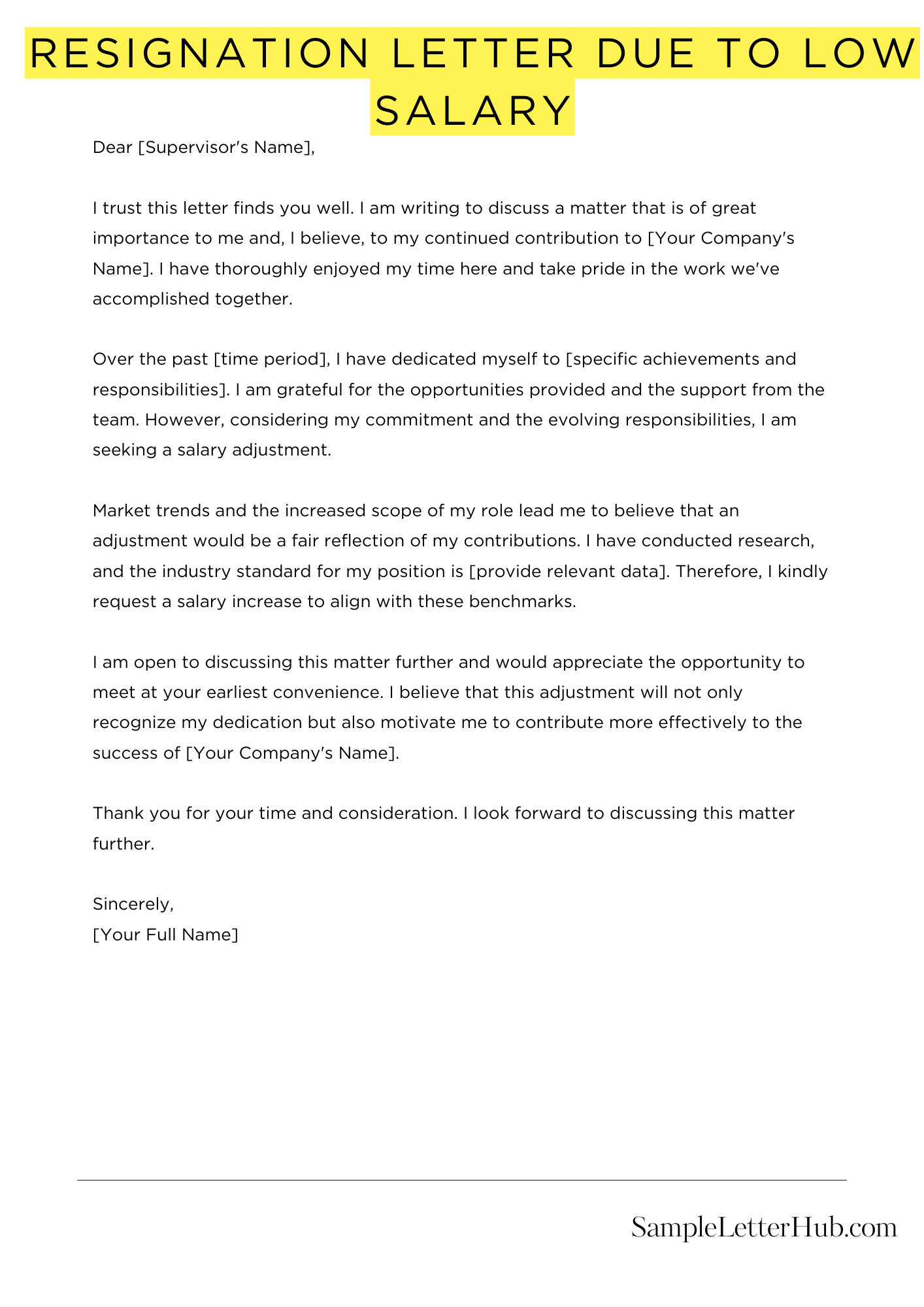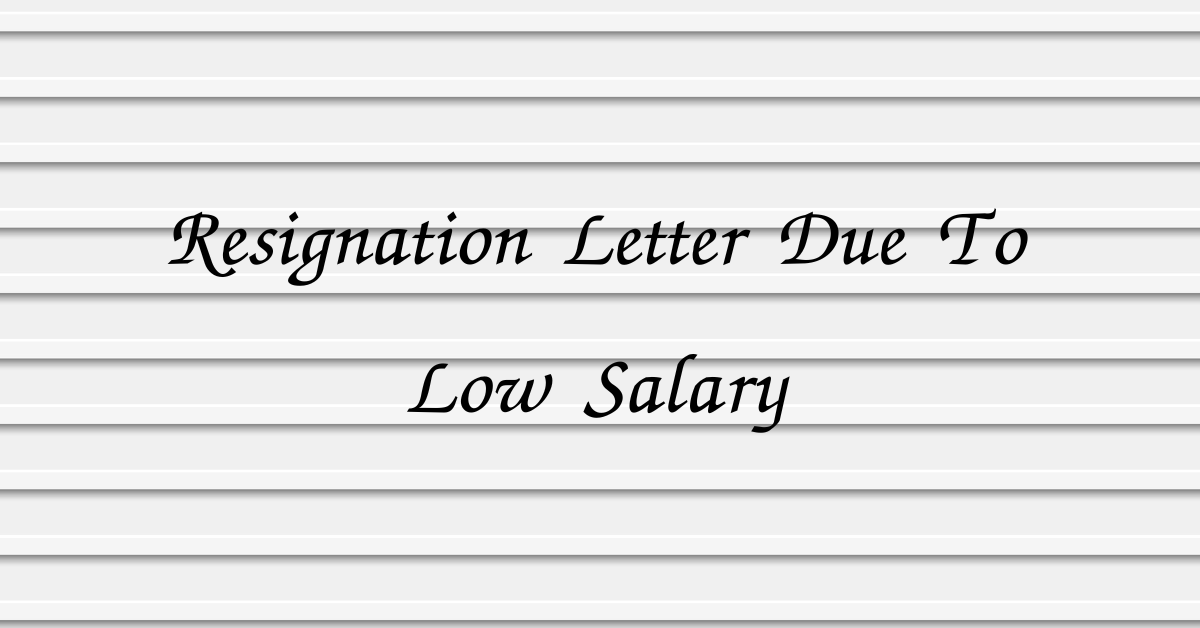Resignation Letter Due To Low Salary is a formal letter written by an employee to inform their employer of their decision to leave their job due to low salary. It is a professional and respectful way to end employment, while also expressing the reason for leaving.
In this blog article, we will share templates, examples, and samples of Resignation Letter Due To Low Salary. These letters are designed to help you write a clear and concise letter that effectively communicates your reasons for leaving. We will also provide tips on how to write a resignation letter and what to include in your letter.
Resignation Letter Due to Low Salary
Dear [Recipient Name],
I am writing to inform you of my decision to resign from my position as [Your Position] at [Company Name], effective [Last Date of Employment]. This decision has not been made lightly and is based on the low salary I have been receiving.
Despite my consistent efforts to increase my salary, I have not been able to secure a compensation package that is commensurate with my skills, experience, and contributions to the company. I have been with the company for [Number] years and have consistently exceeded expectations in my role.
I have enjoyed my time at [Company Name] and am grateful for the opportunities I have been given. However, I believe that it is in my best interests to pursue other opportunities that offer a more competitive salary.
I will do everything I can to ensure a smooth transition during my notice period. I am committed to completing all my current projects and responsibilities to the best of my ability.
Thank you for your understanding and support. I wish you and [Company Name] all the best in the future.
Sincerely,
[Your Signature]

How to Write Resignation Letter Due To Low Salary
1. Start with a Formal Salutation
Begin your letter with a formal salutation, such as “Dear Mr./Ms. [Manager’s Name].”
2. State Your Intention to Resign
Clearly state your intention to resign from your position. Use a phrase like, “I am writing to tender my resignation from the position of [Your Position] at [Company Name], effective [Your Last Date of Employment].”
3. Express Gratitude
Express your gratitude for the opportunity to work at the company. Mention the positive experiences and lessons learned during your tenure.
4. State Your Reason for Resignation
Politely state your reason for resigning, which is the low salary. Explain that you have carefully considered your financial situation and have decided to pursue other opportunities that offer better compensation.
5. Offer to Assist with the Transition
Offer to assist with the transition during your notice period. This shows your professionalism and willingness to help the company.
6. Keep it Brief and Professional
Keep your letter concise and to the point. Use formal language and avoid any emotional or accusatory tone.
7. Conclude with a Formal Closing
End your letter with a formal closing, such as “Sincerely,” followed by your signature and typed name.
FAQs about Resignation Letter Due To Low Salary
1. How do I write a resignation letter due to low salary?
When writing a resignation letter due to low salary, it’s important to be professional and respectful. State your reasons for leaving clearly and concisely, and offer to help with the transition. Keep your tone positive and avoid being confrontational.
2. What should I include in my resignation letter?
Your resignation letter should include your name, position, and the date you’re resigning. State your reason for leaving, and offer to help with the transition. You can also express your gratitude for the opportunity to work at the company.
3. How much notice should I give?
The amount of notice you give will depend on your contract and company policy. It’s generally considered good practice to give at least two weeks’ notice, but you may want to give more if you have a lot of responsibilities.
4. Can I negotiate my salary before I resign?
It’s possible to negotiate your salary before you resign, but it’s important to be prepared. Research the average salary for your position and be willing to compromise. Be professional and respectful, and be prepared to walk away if you’re not satisfied with the offer.
5. What should I do if my resignation is not accepted?
If your resignation is not accepted, you may want to consider your options. You can try to negotiate your salary or benefits, or you can look for another job. It’s important to be professional and respectful, and to avoid burning bridges.

